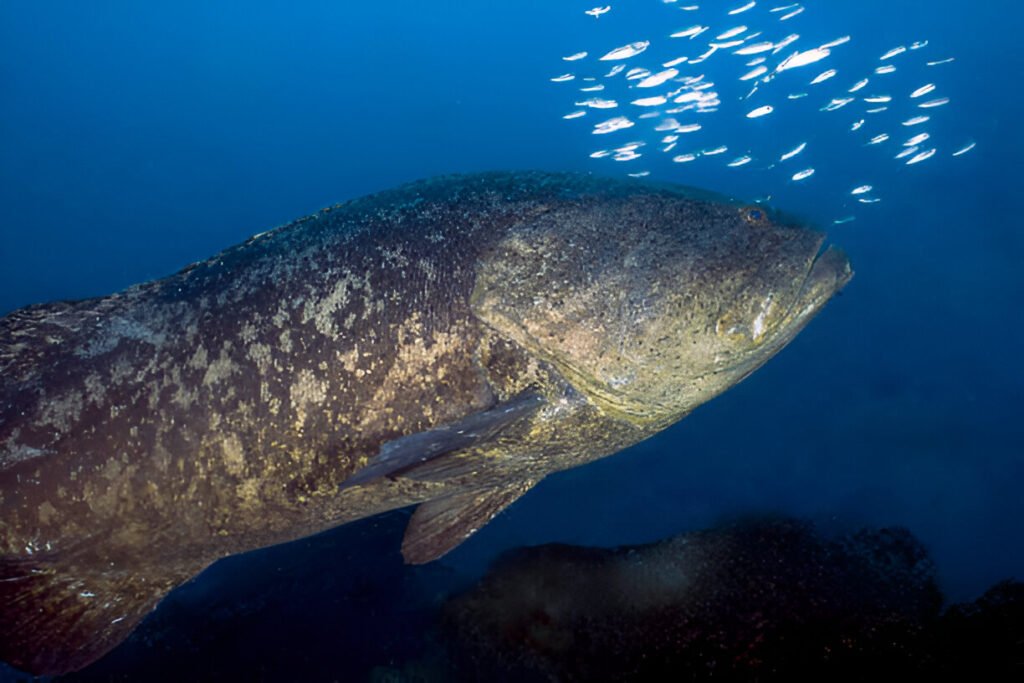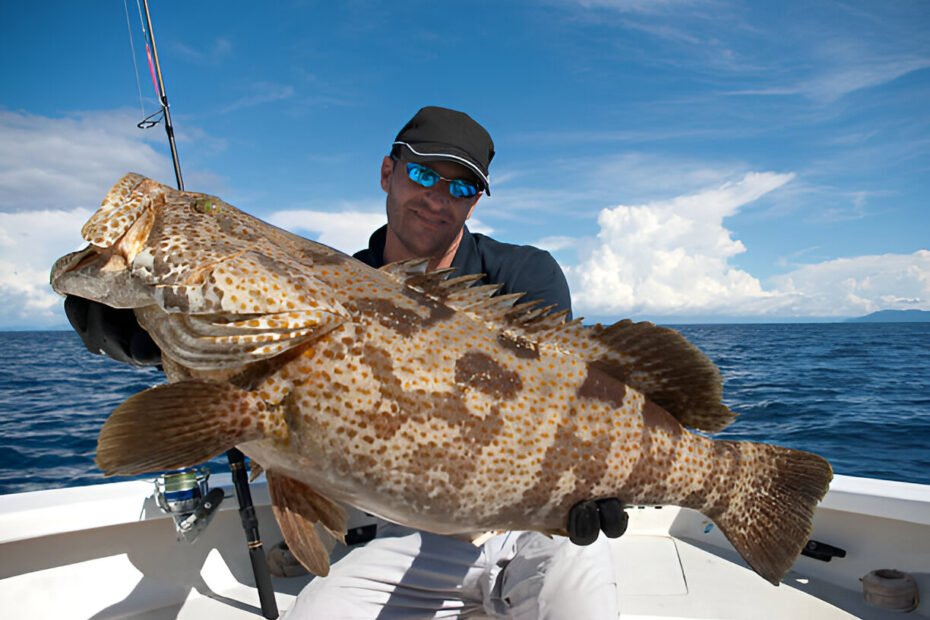Catching a grouper fish is a rewarding experience for any angler, thanks to its size, strength, and delicious flavor. Grouper fishing requires skill, patience, and the right techniques since these powerful fish are known to put up a fight. Here’s a guide to help you catch grouper, covering everything from the best equipment and baits to essential fishing techniques. Let’s dive in!
Choosing the Right Equipment for Grouper Fishing
The first step to catching grouper is equipping yourself with the right fishing gear. Grouper are tough fighters, so a strong setup is necessary to handle their power. This includes a heavy-duty rod, a sturdy reel, and a braided line with significant test strength to withstand the pull of a large grouper. It’s also essential that the rods have enough sensitivity to detect bites. Generally, heavy-action rods between 6 and 7 feet work well. Pair this with a high-quality reel, with a high line capacity, to withstand the intense pulling force. Also, using a braided line rated between 50 and 80 pounds provides strength to resist grouper hiding in rock crevices. Additionally, leader lines are crucial because grouper tend to retreat into rough terrains. OPT for fluorocarbon leaders as they are resistant to abrasion and provide invisibility underwater, increasing the chances of a successful catch.
Selecting the Best Baits for Grouper
Using the right bait can increase your chances of catching a grouper. Because grouper are opportunistic feeders, they go for larger baits. This means live bait, such as pinfish, sardines, or mullet, usually works best. The scent and movement of live bait are highly attractive to grouper and can draw them out from hiding spots. If live bait is unavailable, frozen or cut bait such as squid, octopus, or bonito chunks is another effective option. Artificial lures, though less common, can still be effective. Jigs, particularly those in bright colors, can mimic the appearance of smaller fish and may attract grouper in specific conditions.
Finding the Perfect Grouper Spot
Location is key when targeting grouper. These fish are often found near reefs, wrecks, ledges, and rocky structures where they can hide and ambush their prey. Many experienced anglers use sonar or fish finders to locate these structures and increase their chances of success. For shallow-water groupers, explore rocky shorelines or structures within 20-50 feet of depth. Deep-water grouper species, like the gag or black grouper, are found around structures at depths of 100 feet or more. After finding a good spot, anchor your boat carefully and start dropping your bait near the structure to attract the fish.
Mastering Grouper Fishing Techniques
Grouper fishing demands a few specific techniques to ensure success. One effective approach is bottom fishing, where you drop the bait straight to the seabed. Specifically, let your bait sink close to the structure where grouper are likely hiding, and wait for a strong pull. Setting the hook quickly is necessary since groupers often retreat to rocks as soon as they bite. Lift your rod forcefully once you feel the fish on the line. Applying steady pressure helps pull the fish away from the rocks, preventing it from breaking the line. Avoid giving slack in the line, as groupers use even the smallest relief to dive back into their hiding spots.

Knowing the Seasons for Grouper Fishing
Understanding the best times of year to fish for grouper can make a big difference. Although they’re available year-round, grouper fishing peaks in late spring to early fall when water temperatures rise. Fishing in the summer months is ideal since groupers become more active and can be found closer to shore. In contrast, during winter they tend to move into deeper waters, making it harder to access them without specialized equipment. The spawning season of groupers limits its availability, as regulations prevent fishing during spawning months to protect populations. Familiarize yourself with these local regulations to avoid fishing during spawning times and ensure sustainable practices.
Practicing Patience and Persistence
Catching grouper requires a patient approach. They have cautious behavior, and it may take several casts and repositioning to get them interested in the bait. Additionally, given their size and strength, even if you hook a grouper, reeling it in can be challenging. Patience and persistence are key when targeting these resilient fish. If you’re fishing in areas with high grouper activity, the wait time may be shorter, but even in these spots, expect a bit of a challenge. Groupers have a reputation for “testing” bait before fully committing, so avoid reeling in too quickly at the first sign of a bite.
Keeping Grouper Fishing Sustainable
While catching grouper is thrilling, it’s important to consider sustainable practices to preserve these fish populations. Many grouper species are overfished, and some are protected by strict regulations. Before your fishing trip, check local laws regarding catch limits, seasons, and protected species. Some areas may enforce size restrictions or a catch-and-release policy for certain species. Observing these rules helps ensure grouper populations remain abundant, supporting both the environment and future fishing opportunities. Additionally, if you catch a grouper that doesn’t meet legal requirements, release it carefully to improve its chances of survival.
Tips for Successful Grouper Fishing Trips
To make the most of your grouper fishing experience, plan your trip around favorable weather conditions and consider fishing with local guides if you’re unfamiliar with the area. Additionally, test your equipment before heading out to avoid unexpected issues. Check the knot strength and replace worn-out lines to increase your chances of a successful catch. Grouper fishing can be physically demanding, so bring adequate water, snacks, and sun protection. Many anglers find that the right preparation enhances both safety and enjoyment, allowing for a more fulfilling trip.
Conclusion
Catching grouper is a test of skill, patience, and endurance, rewarding you with an exciting fishing experience. By using the proper equipment, selecting the right bait, and fishing in ideal locations, you will catch this prized fish. Remember to fish responsibly by following local regulations, practicing sustainable methods, and handling your catch with care. Each grouper fishing adventure brings its own unique challenges and rewards, adding to the satisfaction of this remarkable pursuit.
